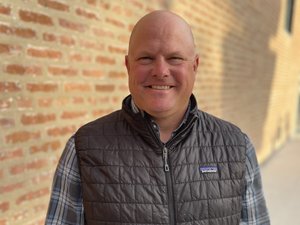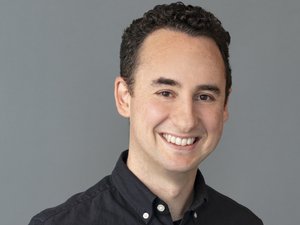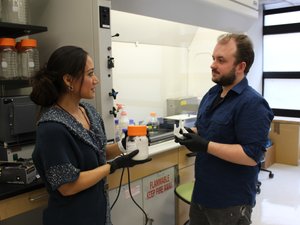Legislation copying happens more often than you would think.
Whether it's a legislator who is too busy to craft unique language or is hoping to replicate a similar law in another state, often the language used in laws, particularly controversial ones, can come from lobbying groups. For example, Florida's 2005 "Stand Your Ground" law quickly spread to over 24 other states, ten of which had wording that can be traced back to model legislation created by the National Rifle Association and the American Legislative Exchange Council (ALEC).
Though it is common practice, it was incredibly hard to track on a large scale, given the vast amounts of information that would need to be analyzed across 50 different states.
That is, until now. A group of data scientists working this summer at University of Chicago's Data Science For Social Good fellowship have created a tool that will launch later this year that can match legislation across state lines, offering journalists, researchers, and other watchdogs an efficient way to track lobbyists' influence. Creating transparency at the state level could also offer opportunities to tinker with legislation on hot-button topics, such as medical marijuana, as it rolls out on a wider scale.
"I don't think people are aware of when [lawmakers] do this and why," said Matt Burgess, a PhD computer science student at University of Michigan, and one of the fellows on the project. "No one has been able to study at large scale how this copying happens. Legislators… know the process but no one from the outside can look in at how this diffusion happens in states over time."
The source of their computation is an alignment algorithm often taught in an introductory computer science classes, he said. It's a flexible algorithm used to match DNA and language translation applications. Similarly, they refined the algorithm to comb through huge amounts of text to find matching language, and measure the likelihood that legislation had been copied. The tool looks at available government data scraped by the Sunlight Foundation, a transparency advocacy organization, and the partner on the data science project. Before this data was put together, and the tool was developed, advocacy groups had to focus on one topic, or follow one lobbying group, and gone from state to state searching for a match in text.
Now,"it's a four day operation rather than being a hundred year operation," said Burgess. "It speeds it up dramatically."
This summer the team (which included Burgess, Eugenia Giraudy, and Julian Katz-Samuels, and technical mentor Joe Walsh) mostly focused on creating a tool, which they aim to launch this fall. Now they are excited about the possibilities it can offer. Though they are still working on analysis of the data, in testing the tool they found evidence of large scale matching text on controversial laws, such as abortion bills, across the country, as well as small variations in wording on bills such as texting and driving laws (for example, in some states, it is legal for a police officer to text and drive). They also found evidence of matching text being used for entirely opposite legislation-- a California bill on carbon cap-and-trade uses the same language as a lobbying group's model legislation that opposes carbon cap-and-trade.
Outside of tracking the influence of lobbying groups, the team sees this as an opportunity to view state-level lawmaking as labs.
"One of the benefits of having states and the variability to pass law… is that states can be testers for things that are controversial, or scary to people at first," Burgess said. "Once you have a law that makes sense and [shows] that it works, there really isn't much a point of drafting your own, other than varying the bill to make it work for your state."
Image credit: Wikimedia/Daniel Schwen








